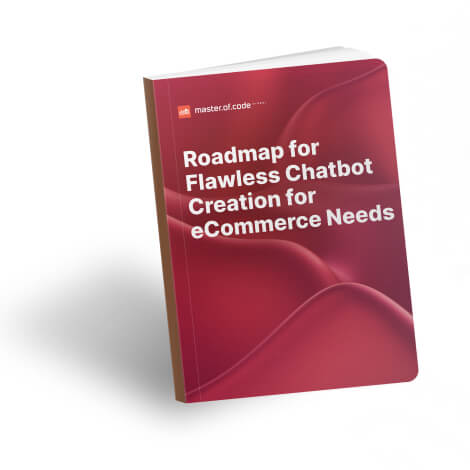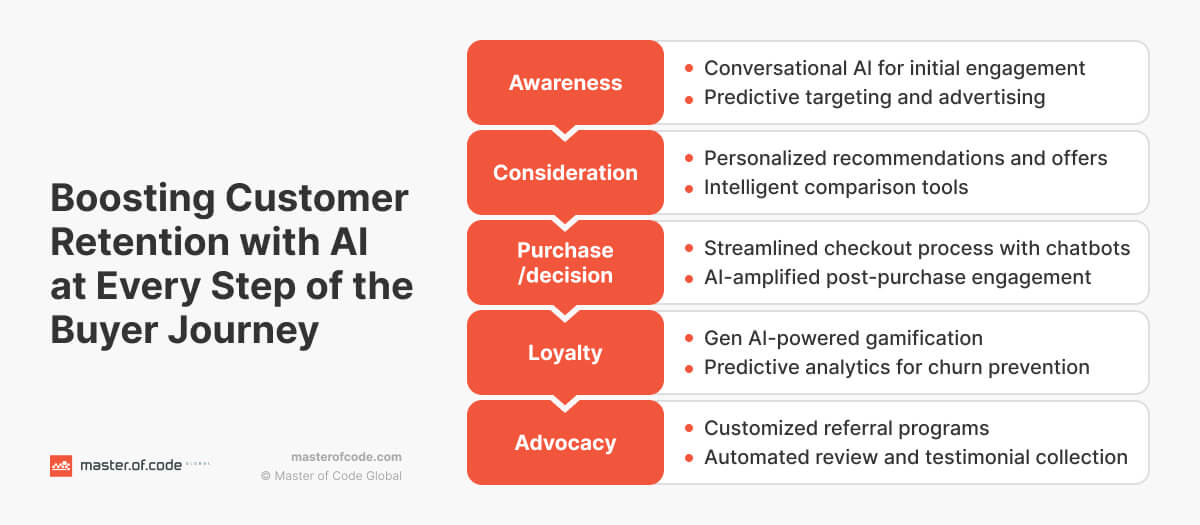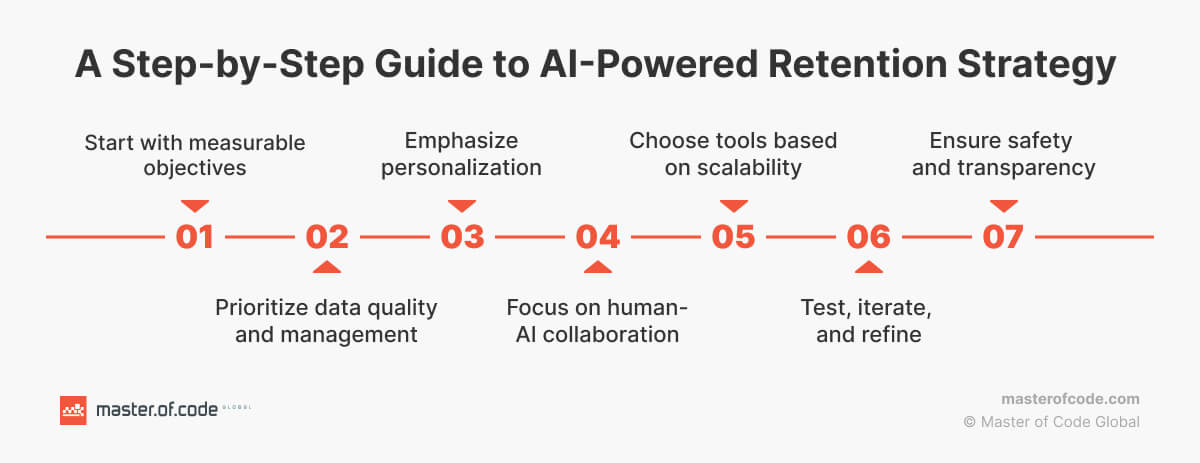In the high-velocity industry of eCommerce, client retention is paramount. Loyal customers are the lifeblood of any brand, generating 44% of total revenue and placing 46% of all orders. However, the average retention rate for the sector is only 38%. This is significantly lower than other industries like insurance (83%) or telecommunications (78%).
Such a disparity in this metric translates to a massive missed opportunity for online retail. Let’s imagine that two companies have similar average customer values (ACV) and profit margins. In this case, an insurance firm could potentially generate nearly double the revenue from repeat purchases compared to an eCommerce business, simply by retaining more buyers.

In reality, the ACV and profit margin vary across domains. Nonetheless, this simplified calculation demonstrates the substantial impact that even small differences in retention have on a company’s bottom line. By nurturing buyer allegiance, industry leaders unlock a source of additional revenue and improve their long-term profitability.
At Master of Code Global, we envision the future of the sector closely aligned with AI advancements. As specialists in Generative AI development, we have a wealth of experience in conversational projects. Based on that and the deep expertise of our marketing unit, we’ve compiled this guide to equip brands with actionable techniques for boosting loyalty.
Read on to learn how Generative AI for eCommerce retention can transform your strategy and what tactics our marketers recommend to help you drive sustainable growth.
Learn how to build chatbots that boost engagement and reduce cart abandonment.

Table of Contents
Customer Retention with Generative AI: A Stage-by-Stage Approach
The Head of Digital Marketing, Mykyta Fomenko, envisions Generative AI as the linchpin in business strategy to not just attract, but keep shoppers engaged throughout their lifecycle:
- At the awareness stage, this technology streamlines full-stack campaign creation. From targeted messaging to market analysis, it empowers businesses to reach the right audience with the right message.
- In the consideration phase, artificial intelligence fuels dynamic content management. You can rely on it to craft hyper-personalized offers, nurturing prospects towards conversion.
- Post-purchase, AI-powered analytics optimize product recommendations, predict churn, and customize the shopping journey, fostering loyalty and increasing retention rates.
- Finally, by identifying optimal communication channels and crafting compelling narratives, AI amplifies advocacy. It can help brands turn satisfied consumers into passionate brand ambassadors.
This inclusive AI-amplified approach ensures you’re not just making sales, but building lasting relationships for business expansion. Let’s now dive deeper into each stage and explore how Gen AI elevates customer experience (CX) and allegiance.

Awareness
According to Anastasia Kovalevska, Content Team Lead at Master of Code Global, Generative AI in eCommerce is currently most commonly used in the early stages of consumer acquisition. It’s adopted for generating quick content, product descriptions, and even visuals. Such an approach is straightforward, accessible, and yields immediate results. For example, it leads to populating an entire website with texts in a fraction of the time it would take a human. However, there’s even greater potential for Gen AI to enhance the CX in areas that lack clarity, like home renovations.
Imagine a chatbot that allows users to visualize their projects. It generates realistic renderings based on their preferences, complete with cost estimates and item recommendations. This level of personalized service, available on-demand, could transform the way buyers interact with businesses, leading to increased engagement, retention, and sales.
Overall, you can implement eCommerce generative solutions in the awareness stage by:
- Crafting customized item summaries that appeal to each customer.
- Creating dynamic email campaigns with tailored subject lines and content based on user behavior.
- Generating targeted ads that speak directly to specific client segments.
- Building virtual demos or 3D visualization tools to help buyers envision how products would fit into their lives.
For instance, Stitch Fix trained OpenAI’s GPT-3 to create product descriptions. This enables them to generate 10,000 of those every 30 minutes. To ensure accuracy and maintain brand voice, each piece is quickly reviewed by human experts, which is still significantly more efficient than writing everything from scratch.
Consideration
Kateryna Cherniak, the seasoned SEO specialist, stated that eCommerce websites with extensive filter options could greatly benefit from allowing users to input custom search criteria. These platforms could then analyze the entire product catalog and present only the items that precisely match the specifications.
This approach streamlines the process, enabling shoppers to quickly find exactly what they’re looking for. It could also enhance engagement and retention by fostering a more memorable browsing experience. Additionally, AI is able to deliver personalized offers and discounts that match with each buyer’s unique preferences.
Key applications of Generative AI in the consideration stage include:
- Employing AI algorithms to dynamically adjust pricing and offers as per individual engagement and history.
- Creating customized suggestions by examining searching patterns, saved choices, and buying habits.
- Developing AI-powered comparison tools that allow shoppers to evaluate products based on their needs and priorities.
- Enhancing client support with AI chatbots that answer detailed product inquiries.
- Analyzing interactions to identify potential pain points or barriers to purchase, and proactively addressing them through specific recommendations or promotions.
Take for example our product OneClickUpsell. We use Gen AI to generate personalized upsell options, guide new merchants, facilitate split testing, and automate description creation. The result is a 10-50% increase in order value and a 16% average conversion rate.
Purchase
Veronika Malyshko, our B2B marketer, believes that artificial intelligence in eCommerce opens new horizons for personalization during the decision stage. This involves not just customized upselling during the purchase itself but also afterward. Refine recommendation models to use a broader spectrum of data, going beyond just the last order.
Imagine a system that understands individual preferences, shopping history, and browsing behavior to offer truly tailored suggestions. Additionally, AI helps organizations create a more flexible approach to consumer incentives. By understanding what motivates each buyer – be it a discount, a coupon, or free shipping – you are able to adjust offers that make clients return.
To maximize the impact of the technology on the retention rate, consider implementing the following strategies:
- Automate and simplify the checkout process with AI-powered features.
- Employ Gen AI to monitor and manage inventory levels in real-time, preventing stockouts and abandoned carts.
- Utilize conversational systems for personalized post-purchase communications, including order updates, feedback requests, and targeted promotions.
- Introduce intelligent tools to detect and prevent fraudulent transactions, ensuring a secure environment.
- Implement AI-driven notifications to alert customers about low stock or restocked items.
- Analyze reviews to identify areas for improvement and tailor future advice.
An excellent illustration is how Walmart integrates machine learning to curate a dynamic product catalog. The technology interprets various inputs, including trends, seasonality, and in-demand items. This ensures the right products are available when and where buyers want them, minimizing out-of-stock situations.
Loyalty
Our copywriter, Liliia Kovalyk, believes that customers remain loyal to eCommerce brands that offer better and more innovative features and benefits. Imagine an AI-powered ‘virtual dressing room’ where consumers upload a photo and virtually try on clothes, assessing fit and style. This, coupled with an ‘AI stylist’ feature that recommends complementary items, could significantly enhance the online shopping journey and drive repeat business.
Your brand can benefit from the following:
- Use AI algorithms to optimize loyalty program management. It will send individualized rewards and incentives based on the unique set of preferences.
- Employ predictive analytics to identify at-risk clients. With the achieved data, you proactively address their concerns with modified outreach and specific retention strategies.
- Continuously examine the performance of your program and make adjustments based on AI-driven insights to maintain relevance and engagement.
- Deploy eCommerce AI chatbots to handle post-purchase inquiries efficiently, providing 24/7 help and freeing up human agents to focus on escalated cases.
- Integrate AI with your CRM system to resolve simple issues faster, automate manual tasks, and ensure a smooth transition between automated and human support.
One of the companies that benefited from artificial intelligence for their rewards program is Starbucks. Their proprietary AI tool scrutinizes data to identify and incentivize specific cohorts. The result is a 13% year-over-year increase in 90-day active members.
Advocacy
Tanya Tsymbal, a copywriter with experience in the customer service field, envisions artificial intelligence as a stimulus for designing engaging loyalty programs. “Imagine a virtual assistant that offers you a referral discount for bringing in a friend or even rewards you with a percentage of their purchases. Or an eCommerce company that uses your reviews, photos, and social media posts to create brand stories. This kind of recognition makes devoted clients feel valued and proud.”
With Generative AI, you can strengthen advocacy by:
- Deploying LLM-driven chatbots to examine data and suggest tailored referral incentives, maximizing engagement.
- Employing intelligent systems to identify and showcase compelling user-generated content (UGC) for brand promotion.
- Automating the curation and sharing of such content across various platforms.
- Creating targeted advertising campaigns featuring authentic UGC.
- Training AI models to analyze referral program performance and optimize strategies for maximum impact.
Wrapping Up

Generative AI promises to reshape customer retention in eCommerce, crafting a new reality for brand-consumer interaction. From hyper-personalized experiences to bespoke loyalty initiatives, the opportunities are vast. Successful implementation, however, requires a strategic focus on data integrity, human-AI collaboration, and ethical considerations.
If you’re ready to explore the possibilities of the technology for your business, Master of Code Global is here to help. Our team of experts will guide you through the entire process, from strategy development to integration and ongoing optimization. Contact us today to get a solution that allows you to retain more clients and foster long-term growth.
Ready to build your own Conversational AI solution? Let’s chat!






